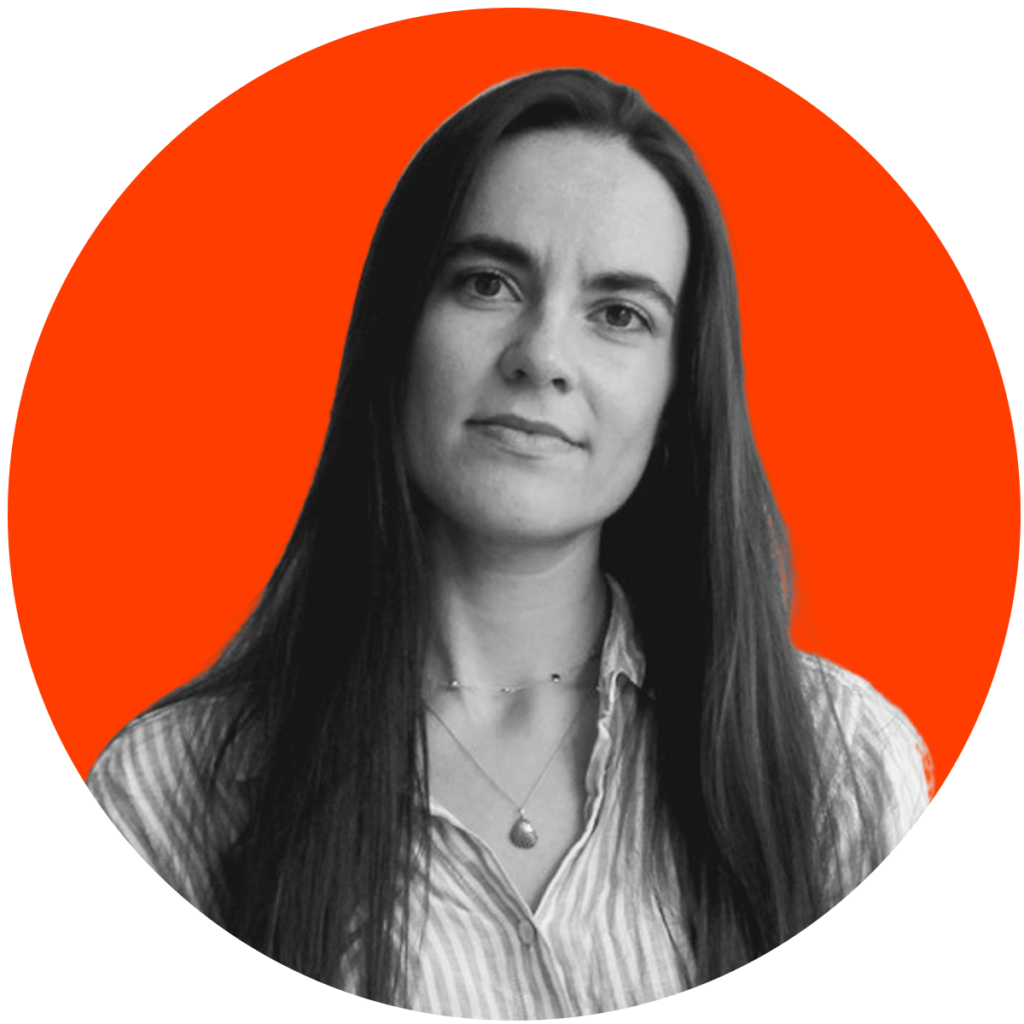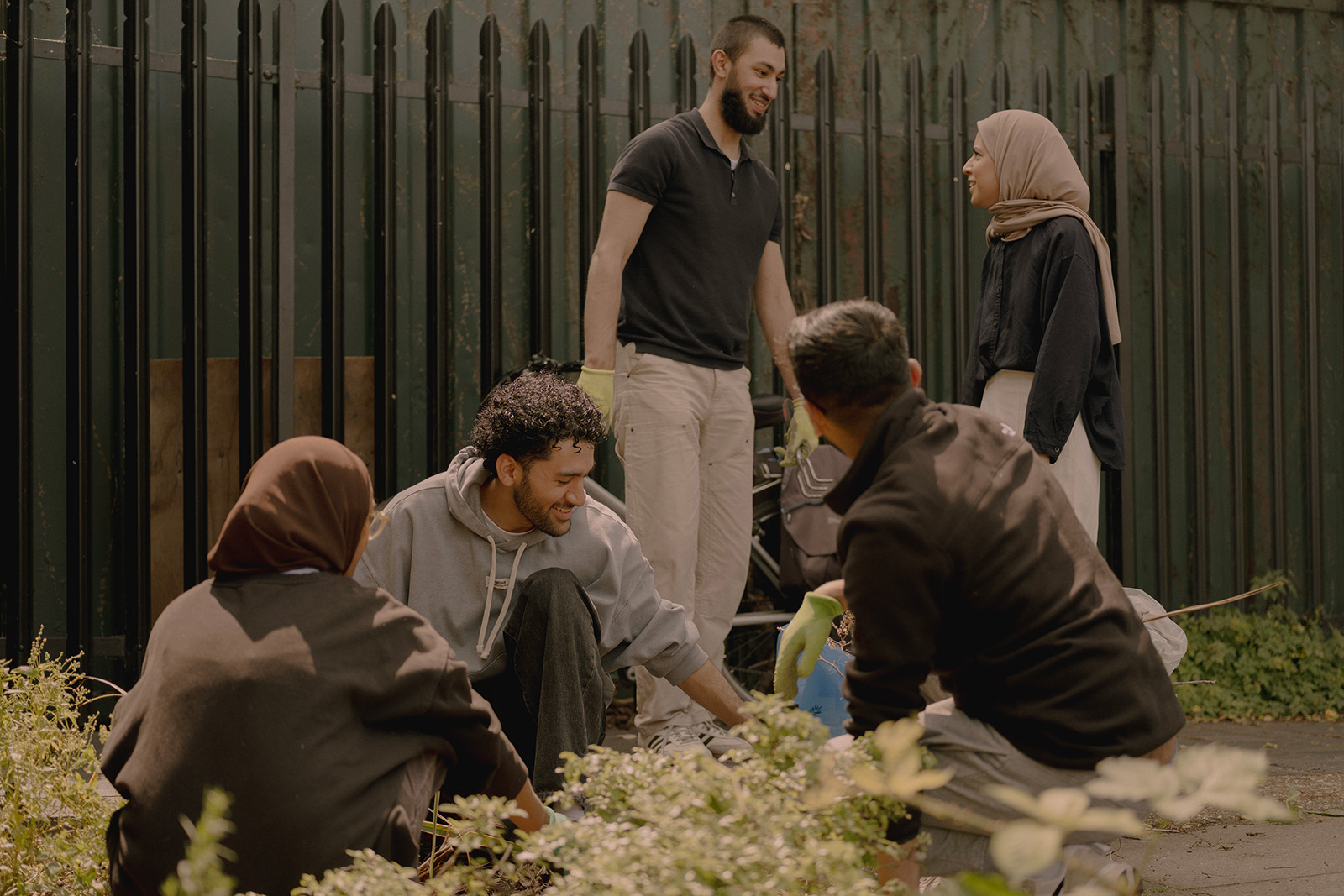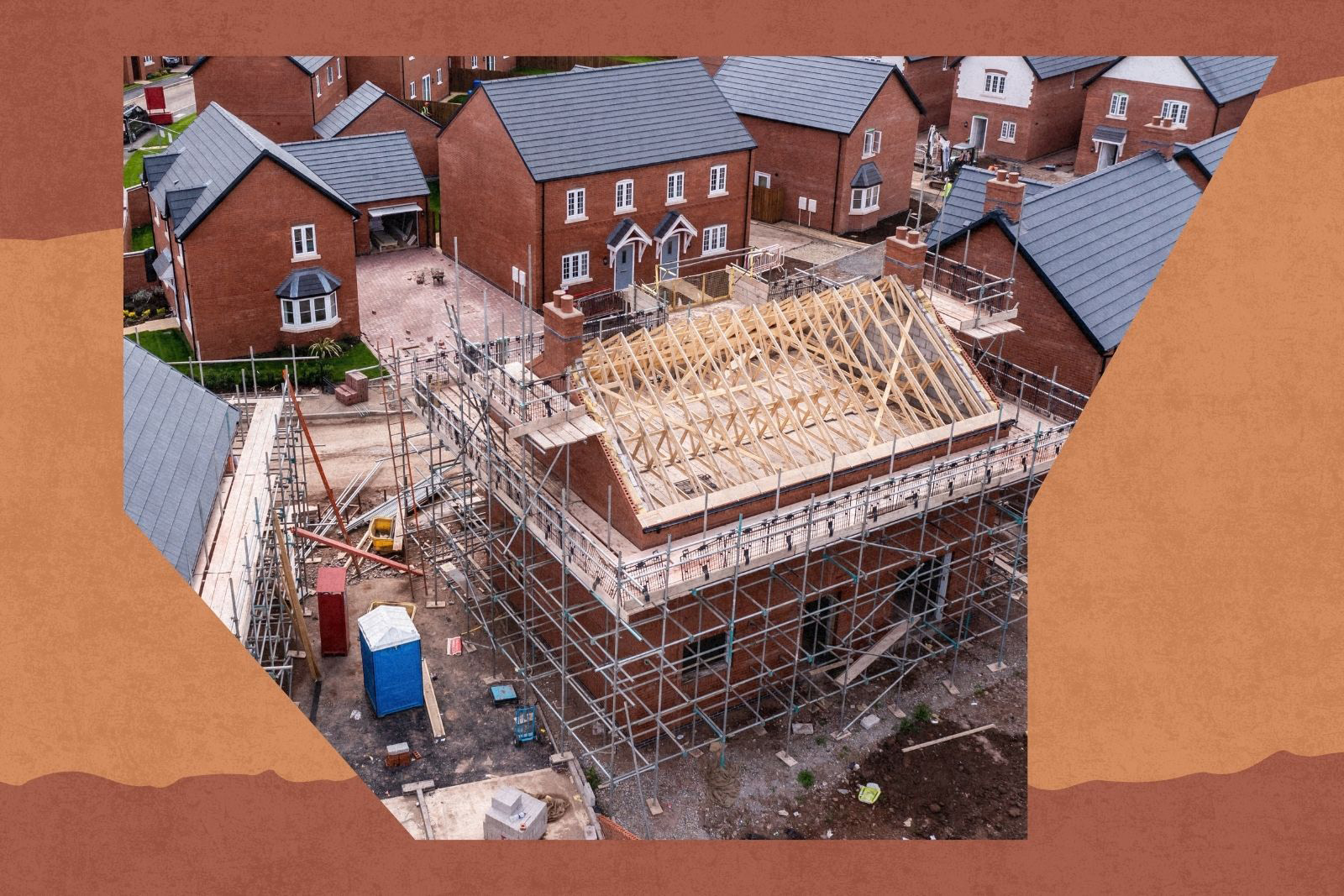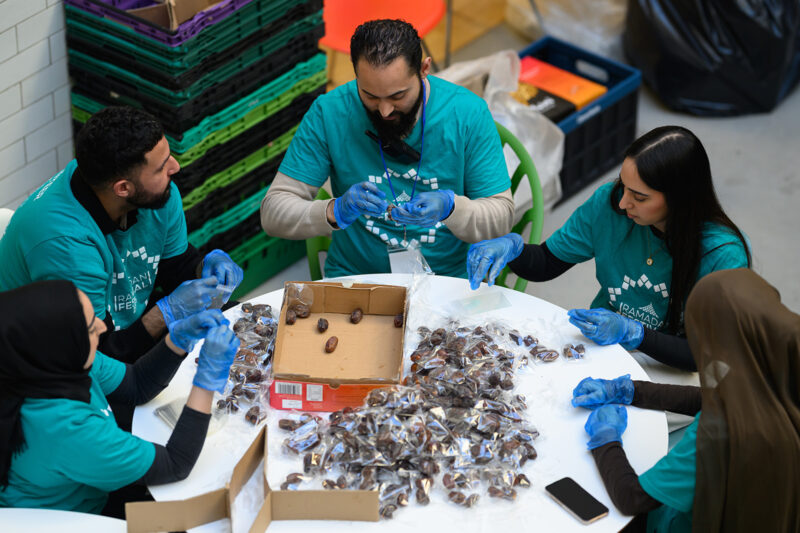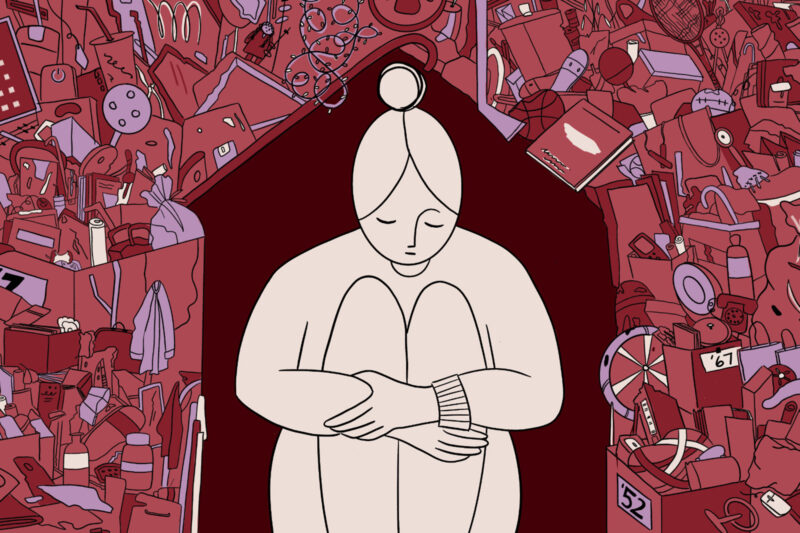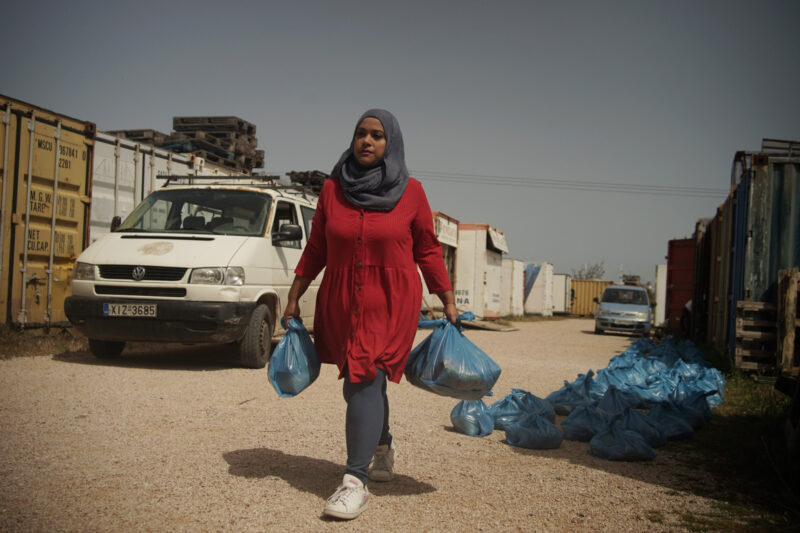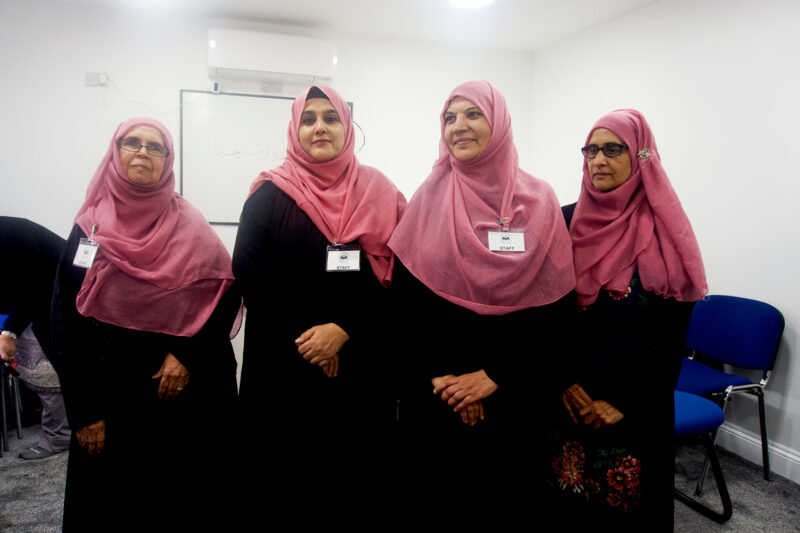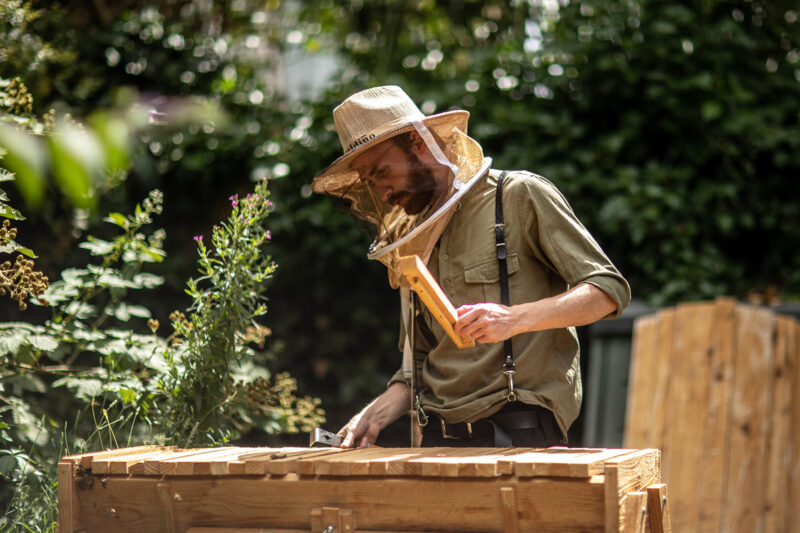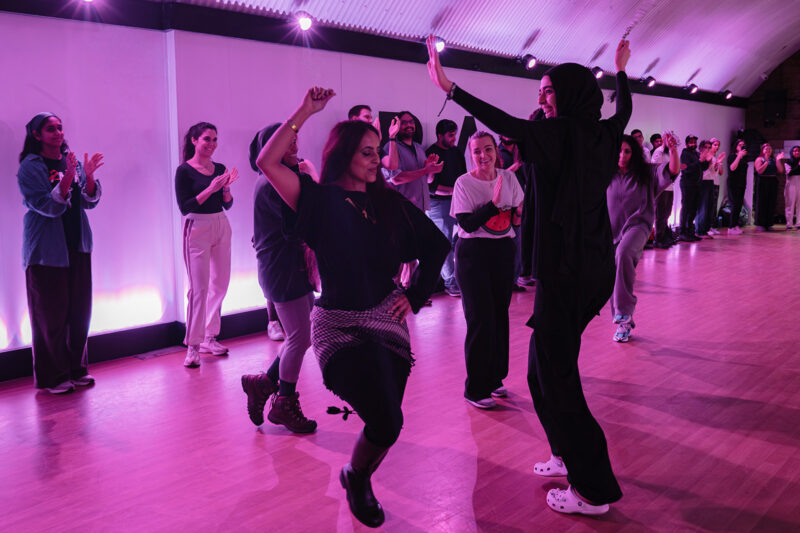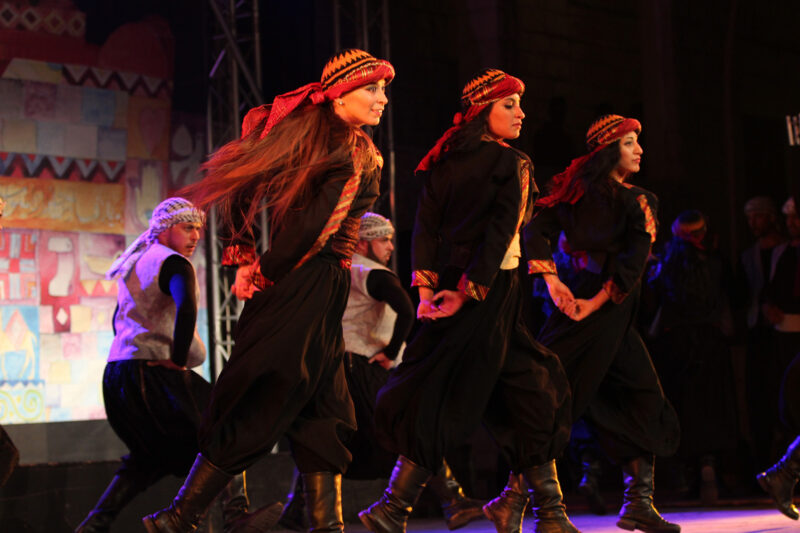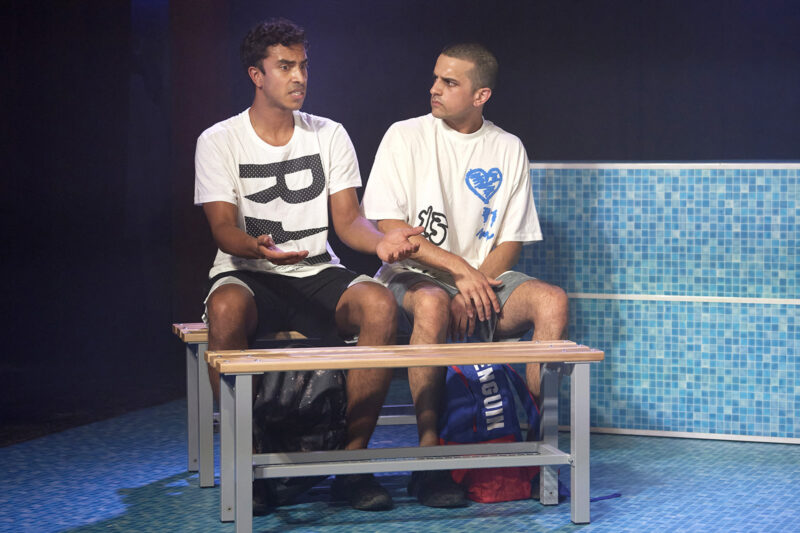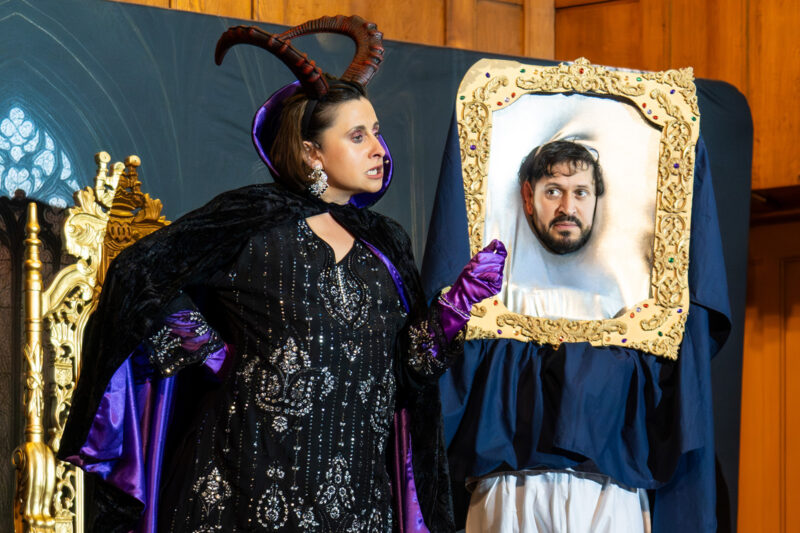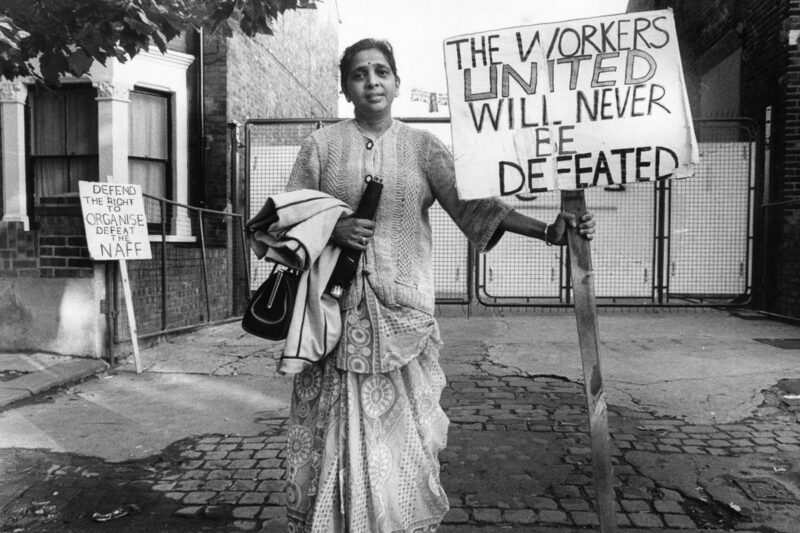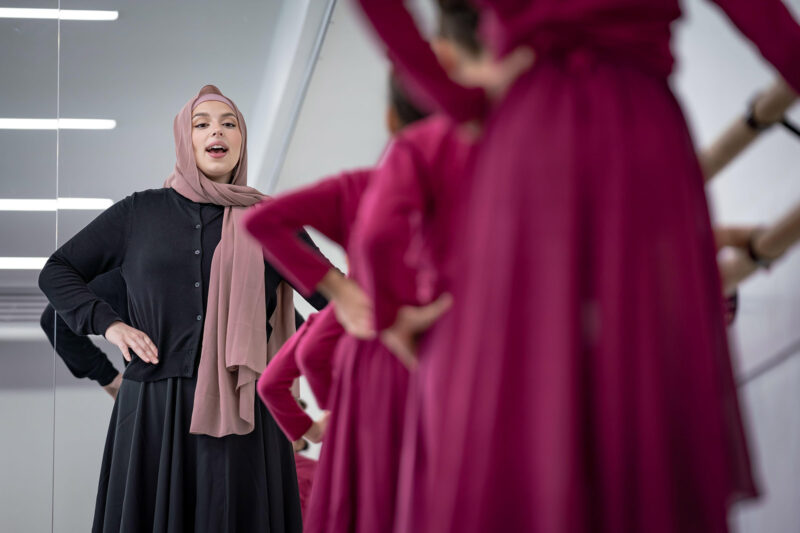The theatre group putting refugees at centre stage
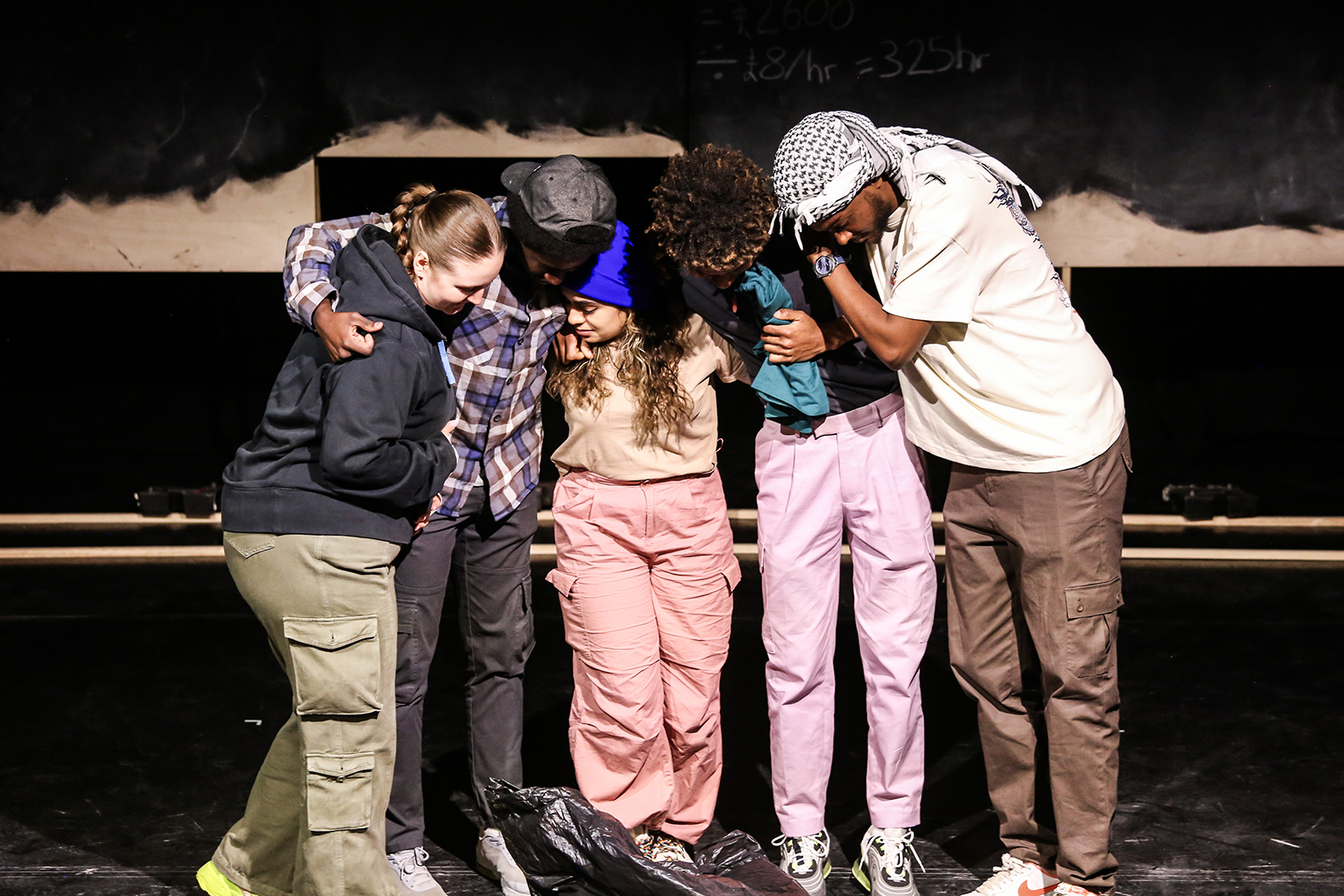
Phosphoros Theatre uses performance to tell stories of forced displacement, from the people who have lived through it
A group of young people pace around a dimly lit stage in east London. There is a problem: their friend has vanished. He didn’t turn up to college and isn’t answering their texts. They later discover he’s been moved to accommodation in another part of the country while he waits for his asylum claim to be processed. Now he has to start all over again — away from his friends and community.
The actors are performing in a play called Tender by Phosphoros Theatre, a charity that puts on productions with refugees and people seeking asylum. Although the script is fictional, it echoes their own experiences. They all came to the UK seeking safety from countries including Ethiopia, Iraq, Chad, Eritrea and Albania.
The name of the charity is a nod to the god of the morning star in Greek mythology, as they aim to “shine a light on untold stories”, says Kate Duffy-Syedi, the group’s co-artistic director.
Duffy-Syedi was working at a grassroots refugee organisation in London in 2015, supporting young Afghan men who had come to the UK without their parents, when some of them told her that they wanted to find a way to share their stories with the British public.
She had studied drama at the Royal Central School of Speech and Drama in north-west London two years previously, so began leading informal drama workshops after they had finished college. Phosphoros Theatre has since run free acting workshops for young refugees and people seeking asylum in cities and towns across the UK. Each year they work with around 450 individuals, focusing on telling the stories of those with experience of forced migration, including workshops specifically for women and LGBTQI+ people.
In the 10 years since she first started the classes, attitudes towards migrants in the UK have changed drastically, with the far right posing its most serious threat in decades. Refugee stories are “in the media constantly and it’s part of our national discussion daily,” Duffy-Syedi says, adding that the conversation has turned increasingly toxic and hostile. Phosphoros’s most recent performance at community arts festival Queer Migrations in London in August took place amid a wave of anti-migrant protests across the UK targeting accommodation housing people seeking asylum and one year after racist riots spread across the country.
Duffy-Syedi believes it is more important than ever to share these stories. “If we don’t tell them because of the hostility facing refugees, then who’s going to tell them? Having theatre as an outlet to do that feels completely essential.”
The team behind Phosphoros hopes that these young refugees will find resilience in community, bringing together people from different backgrounds and religions, while bridging social divides through performance.
“I don’t know how people can have this much hate towards people,” says Ismael Mohammed, 21. He came to the UK from Eritrea on his own in December 2020, aged just 16, and still recalls the piercing cold of his first day on British soil. “We want to be in our country. The weather, the food… we miss our grandma, our mum and dad. We want to be there,” he says. “But it’s the situation that brought us here, to get away from persecution, from war.”
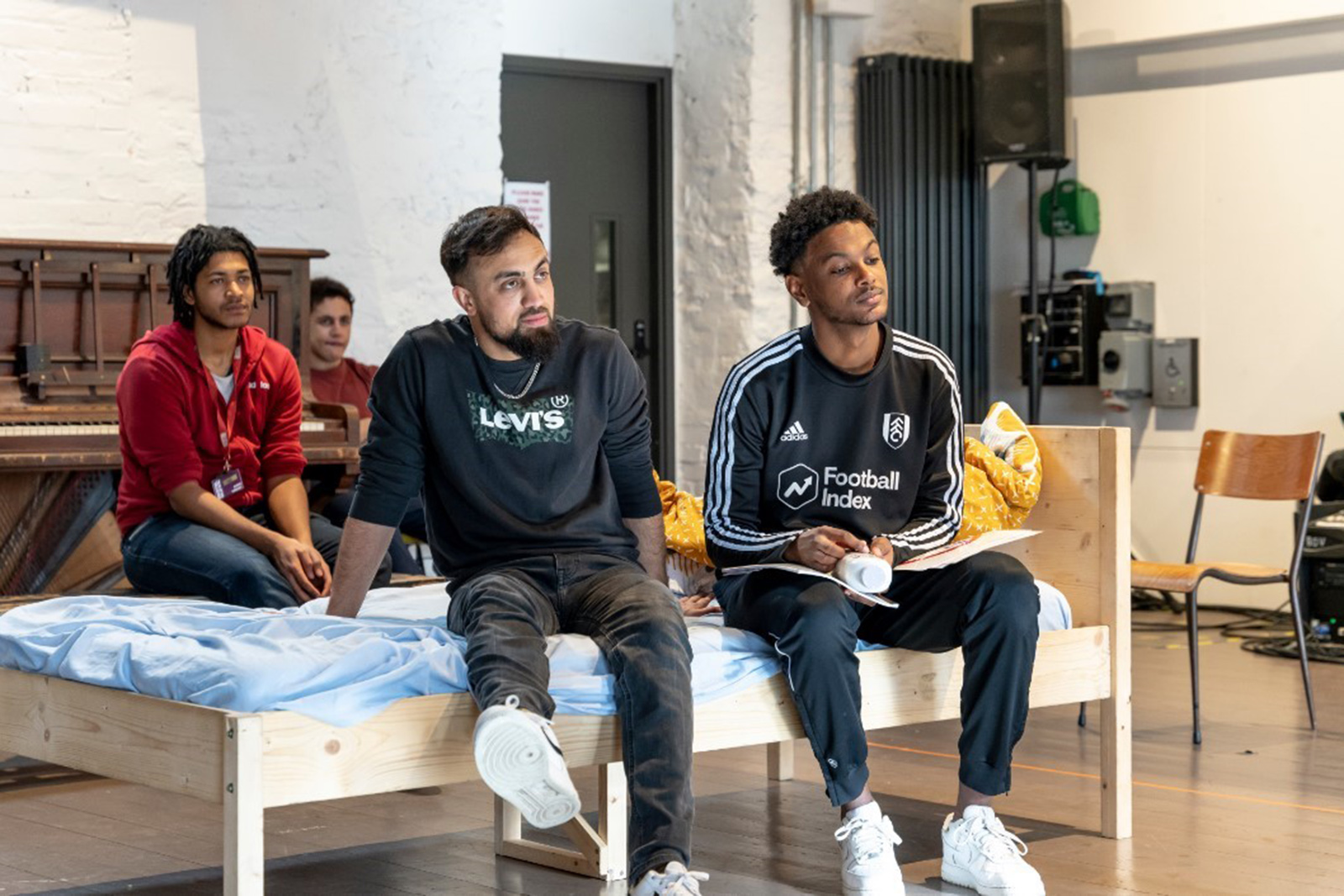
Syed Haleem Najibi, 25, was one of Phosphoros’s first members and is now a trustee. He has performed in almost all of their shows and led more than 150 workshops with young refugees. Najibi arrived in the UK in 2013 from Afghanistan and now lives in Kilburn, north-west London. His aunt and nephew were living in a hotel at the time of the riots last year.
“Watching them made me feel very scared — scared for my family first, but also of what other things people are capable of or would be willing to do to someone like me,” he says.
“We are humans, just like everyone else, and are trying to have a better life for ourselves, and for our families. I have a daughter, and if she was born in Afghanistan today she would have no life. If it’s your family’s future at stake, you would do anything.”
Though their theatre productions may not reach the people promoting anti-migrant sentiment, the team still believe they are helping to foster a better understanding of lived experience of forced displacement.
“We use the shows to subvert the expected narratives about refugees, mostly about unaccompanied minors,” explains Duffy-Syedi. “We invite or sometimes demand the audience’s attention, to listen to those stories and put aside preconceptions or misconceptions that they might have.”
So far, Phosphoros has put on 11 plays at theatres around the UK, all of which are written by Duffy-Syedi’s mother, the TV writer and playwright Dawn Harrison, in collaboration with participants such as Mohammed. Often, members of the audience — who are generally a mixture of refugees and British nationals — will tell the cast how much they relate to their stories. “That makes you feel proud,” says Mohammed, who joined Phosphoros as an actor in 2021 and now facilitates workshops.
Mohammed had always wanted to be an actor, but never had the opportunity to get into drama. “This was my chance to go out there, even if I was very nervous about talking in front of people. I pushed myself and did it,” he says. “It was scary at the start, but it felt like home, because a lot of people have the same experience as me. It makes me feel like I’m with my family.”
Najibi arrived in the UK speaking very little English and now works as a sustainability engineer after receiving a scholarship for asylum seekers to study at Queen Mary University of London. “Phosphoros showed me that there is always a possibility, and that I can’t give up,” he says. “If I didn’t join, I probably wouldn’t have heard of the scholarship or wouldn’t have had the right support to do the application.”
Another actor, Muhammed Mahmood, 22, now studies at the Royal Central School of Speech and Drama. He came to the UK from France, hidden in the back of a lorry, in January 2019 after leaving Iranian Kurdistan. “I don’t want to die without sharing my point of view, what I’ve been through and where I came from,” he says.
“I want to tell you what’s happening, why millions of people are putting their lives at risk to come to Europe. I want to change your opinion.”
 Newsletter
Newsletter

